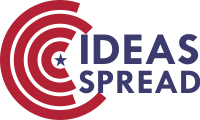Current Situation and Countermeasures of Education Support for Junior High School Students in Single-Parent Families
Abstract
This paper aims to analyze the current situation of education support for junior high school students in single-parent families in China, discuss the existing problems, and put forward corresponding countermeasures and suggestions. First of all, the current situation of education support for junior high school students in single-parent families is analyzed from the aspects of family education resource allocation, school education support, social care and policy support. Secondly, through the investigation and analysis, it is found that the junior high school students in single-parent families have obvious problems in the parent-child relationship, psychological status, academic performance and other aspects. In view of these problems, this paper proposes the following countermeasures: improve the policy system of family education support, increase the investment of family education, and carry out the family education training and guidance activities; optimize the school education support system, establish and improve the psychological counseling and counseling mechanism, enrich the diversified education activities; strengthen social care and policy support, encourage social organizations to participate, and the government to purchase services. Through the joint efforts of family, school and society, we will create a good growth environment for junior high school students from single-parent families and promote their all-round development.
References
[2] Zhang, L. (2018). Research on the psychological problems and countermeasures of students from single-parent families. Modernization of Education, (29), 89-92.
[3] Gao, H. (2019). Research on the education problems and countermeasures of students from single-parent families. Education and Teaching Forum, (03), 189-191.
[4] Yang, D., & Liu, Q. (2020). Research on the psychological resilience of junior high school students from single-parent families. School Health in China, 41(04), 541-545.
[5] Chen, L. (2018). Research on the education of children in single-parent families. Education Theory and Practice, (33), 50-52.
[6] Wang, Y. (2019). Research on psychological problems and intervention strategies of junior middle school students in single-parent families. Journal of Medical Psychology, 31(06), 761-765.
[7] Liu, Q. (2017). Research on the education of single-parent family students. Education and Teaching Forum, No.12, 206-207.
[8] Zhao, F. (2018). Research on the education problems and countermeasures of children in single-parent families. Educational Observation, No.12, 69-70.
[9] Li, T. (2017). Research on the education of children in single-parent families. Education and Teaching Forum, (11), 190-191.
[10] Zhang, J. (2018). Research on the education problems and countermeasures of students from single-parent families. Education and Teaching Forum, (05), 165-166.
[11] Hu, Y. (2018). Research on the psychological problems and countermeasures of students from single-parent families. Modernization of Education, (36), 70-73.
[12] Xie, X. (2019). Research on psychological problems and intervention strategies of junior middle school students in single-parent families. Journal of Medical Psychology, 31(03), 367-370.
[13] Willow, (2019). Research on the education of children from single-parent families. Education Theory and Practice, (38), 57-58.
[14] Huang, X. (2017). Research on the education problems and countermeasures of students from single-parent families. Education and Teaching Forum, (08), 180-181.
[15] Wang, X. (2018). Research on the psychological problems and countermeasures of junior high school students in single-parent families. Contemporary Education Forum, (06), 73-76.

This work is licensed under a Creative Commons Attribution 4.0 International License.
Copyright for this article is retained by the author(s), with first publication rights granted to the journal.
This is an open-access article distributed under the terms and conditions of the Creative Commons Attribution license (http://creativecommons.org/licenses/by/4.0/).









1.png)














